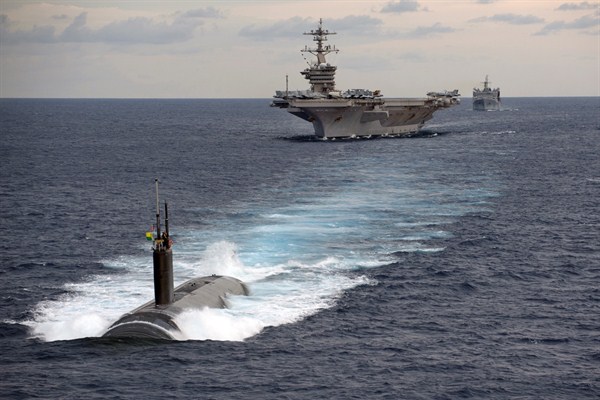Last month, after years of hedging on the issue, India agreed to include Japan as a permanent participant in its annual Malabar naval exercises with the United States, set this year for October. Japan has participated in the Malabar exercises before, but only as an invited observer. The decision to expand the Malabar exercises is a significant turning point not just for India’s role in the region, but also for the development of the trilateral relationship among the U.S., Japan and India. This long-underperforming trilateral partnership brings together the U.S. and the two largest and most influential democracies in the Indo-Pacific region. It also dovetails perfectly with the Obama administration’s commitment to “rebalancing” to Asia with an emphasis on encouraging its allies and key partners to share more of the load.
The Malabar naval exercises have been taking place since 1992 and are the main forum for military cooperation between the U.S. and India. While the exercises have been opened up to other allies and partners previously, until now, that has always been on an ad-hoc basis. Other participants in the Malabar exercises over the years have included Australia and Singapore, as well as Japan in recent years. Last year, Tokyo even co-hosted the exercises at the U.S. Naval Base in Sasebo, Japan.
The decision to elevate Malabar to a formal trilateral exercise this year and going forward is significant. New Delhi has traditionally been risk adverse on opening it up to other U.S. allies for several reasons. First, India values Malabar as a privileged kind of bilateral military activity with the U.S. New Delhi has worried that the inclusion of other states, like Japan, could sideline India’s importance in the exercises. Second, and most important, India remains cautious of engaging in what it sees as alliance politics in the region, due to its longstanding commitment to the nonaligned movement. India is also wary of provoking China through increased and highly visible security cooperation with the U.S. and Japan.

